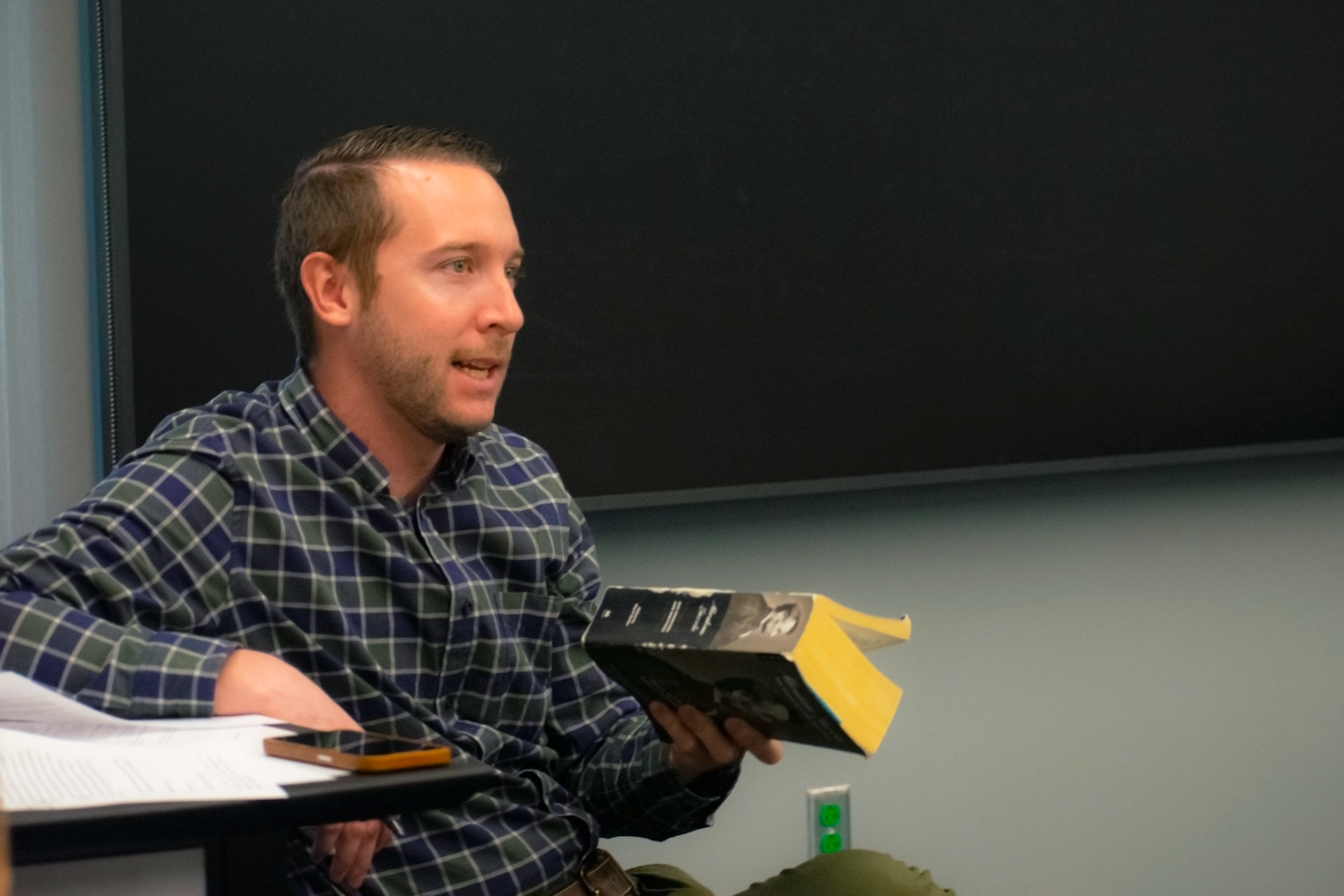ASU course dissects morality, rhetoric through Lincoln's speeches

Students can now enroll in in the spring 2023 course Lincoln: Rhetoric, Thought, Statesmanship.
Abraham Lincoln is revered by many as one of America’s most outstanding political leaders. His vision, speeches and guidance throughout the country’s most devastating conflict have shaped the nation and still impact us today. What can we learn from his speeches, writings and actions today?
A course offered to Arizona State University students in spring 2023 will focus on Lincoln’s rhetoric, thought and leadership. In CEL 394 Class #34883 — held during Session C, from 9 to 10:15 a.m., Tuesdays and Thursdays, on the Tempe campus — undergraduates will utilize Lincoln’s writings and speeches to follow how the 16th president of the United States dealt with some of the thorniest issues of his time.
For example, his speeches covering the growing conflict over slavery in the 1850s; his approach in his first inaugural address, with the nation on the verge of civil war; his broad conception of executive power during wartime; and his message in his second inaugural address, after Americans had been warring with each other for years.
By reading primary sources and sharing their reactions and questions, students will strive together to understand Lincoln’s thought, actions, rhetoric and political context. For Zachary German, assistant professor at the School of Civic and Economic Thought and Leadership, the course offers insight into how we think about America, political life and leadership today.
Beyond a historical interest in this political figure, the questions presented by this course will invite students to reflect on the fundamental issues of moral principles, politics, constitutionalism and leadership.
ASU News spoke with German about what students should expect from this course and how studying Lincoln’s texts can help shed light on today’s complex issues.
Question: Which texts will students read in Lincoln: Rhetoric, Thought, Statesmanship?
Answer: Students will dive into Lincoln’s most significant speeches and writings, from the Perpetuation Address in 1838 to his second inaugural address in 1865. Throughout the semester, we will think rigorously about the ideas, arguments, rhetoric and context of these texts, but we will also have opportunities to examine speeches and writings of some of Lincoln’s contemporaries, such as the abolitionist leader Frederick Douglass and Lincoln’s political rival Stephen Douglas.
Assistant Professor Zachary German
Q: What are the main elements of this course?
A: Rhetoric involves what statesmen say and how they say it. Thought refers to, of course, the way in which statesmen think and the principles they hold. Statesmanship alludes to the actions that statesmen take, flowing from their thought and including their rhetoric. Lincoln will serve as our case study for thinking through each dimension of statesmanship.
Q: Why should an undergraduate student consider taking this course in 2023?
A: Students who take this course will enhance their ability to think carefully about challenging and important issues of political life and leadership – for example, the relationship between moral principles and the practical limits of politics, the relationship between being willing to compromise and standing firm by your convictions, the relationship between favoring harmony and accepting conflict, and the balance that leaders must strike between shaping public opinion and being constrained by it. Students should leave this course with a better sense of who they want to be as leaders and what they want their leaders to be like.
Q: Who should consider taking this course?
A: This is a course for aspiring leaders who want to consider the characteristics and challenges of leadership in the U.S. constitutional order and in a democratic society more generally. It’s also a course for students who want to become more reflective citizens by thinking more deeply about liberty, equality, constitutionalism, democracy and union. Furthermore, it’s a course for students eager to expand their civic education by learning more about this prominent figure and critical period of American history.
More Law, journalism and politics

A new twist on fantasy sports brought on by ASU ties
A new fantasy sports gaming app is taking traditional fantasy sports and mixing them with a strategic, territory-based twist.…

'Politics Beyond the Aisle' series to explore the stories of public officials
In an effort to build a stronger connection between students and political and civic leaders, Arizona State University’s School…

ASU committed to advancing free speech
A core pillar of democracy and our concept as a nation has always been freedom — that includes freedom of speech. But what does…


